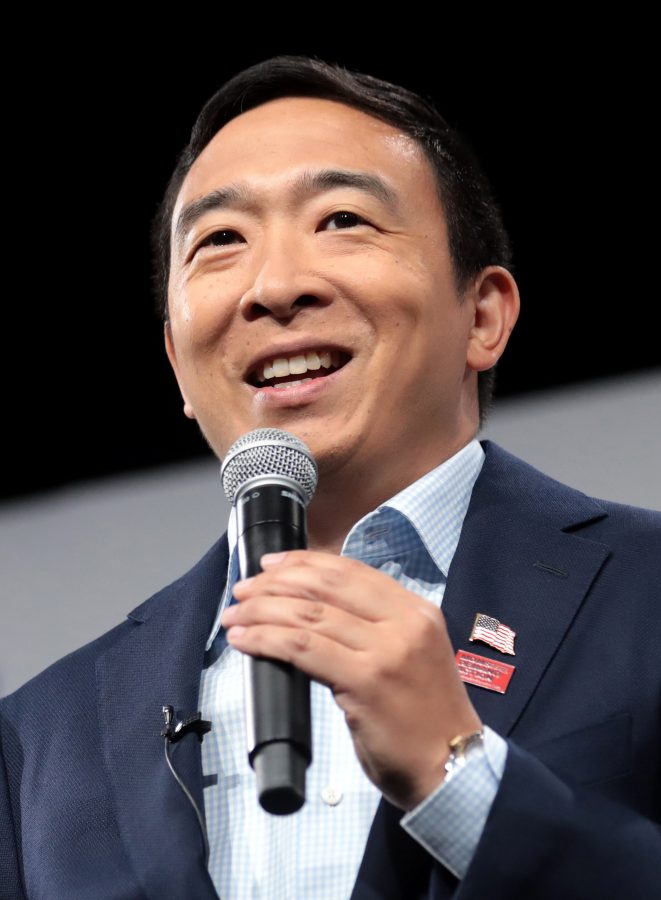Andrew Yang and the Democrats
Gage Skidmore through Wikimedia Commons
Andrew Yang just chillin
Over the course of 2019, presidential candidate Andrew Yang has seemingly sprung out of nowhere into the political spotlight. But what makes him so popular?
“Andrew Yang’s experience in tech and entrepreneurship sets him apart from anyone else trying to find their way to the Oval Office in 2020.” Senior Ethan Kerman thinks, ”He brings unique ideas to the table and changes our perception on what is possible. Most importantly, his Universal Basic Income policy, and Value Added Tax are extremely popular among his supporters”.
A Universal Basic Income is a periodic payment to each citizen of a country, and in Yang’s case, he proposed that each citizen would receive $1000 per month. He says that this payment will lead to a “trickle up economy”, where the middle class uses their widespread ability to stimulate the economy.
A Value Added Tax counters the actions of large tech companies like Google, Amazon, Apple, and Facebook, who take a large portion of their consumer’s data and sell it to the highest bidder. Yang’s advocates for this tax because it allows the government to tax that data, closing the loophole these companies use to take advantage of their patrons.
Yang’s ideas and opinions have sparked much delight from the millennial generation, who have taken the Internet by storm with “Yang Gang” memes and support pages.
But how are the other Democratic candidates appealing to broader audiences?
Massachusetts Senator Elizabeth Warren offered her plan for a “Ultra-Millionaire Tax”, which is a tax on people with a net worth upwards of $50 million, an abolition of the death penalty, and among many others, an increase of the federal minimum wage to $15/hour. She has gained support from lower-middle class voters.
Vermont Senator Bernie Sanders has long stood with his policies of Medicare for all, raising the minimum wage to $15/hour, and his most controversial item, tuition-free public college education. Sanders has support from all over the age and race spectrum, with significant followings from younger black voters.
Former Vice President Joe Biden stands with plans to expand student debt-relief programs, to stop the use of tariffs to pressure countries because of the effect it has on the American economy, and a promotion of researching new, clean methods of nuclear energy production. Biden’s primary voter base resides in the older population.
As of the writing of this article, the next democratic debates are Nov. 20 and Dec. 19, 2019, with six more to be scheduled for the first half of 2020.




